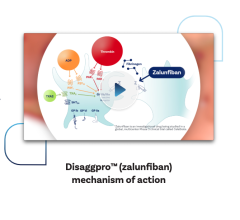
March 19, 2015 — Data from a meta-analysis published recently in The Lancet found that extended-duration dual antiplatelet therapy (DAPT) after drug-eluting stent (DES) implantation was associated with significantly higher rates of mortality compared to shorter DAPT.
The optimal duration of DAPT has been a matter of debate since the introduction of DES. A meta-analysis using multiple analytical approaches to investigate mortality and other clinical outcomes with different DAPT strategies was conducted.
Researchers examined 31,666 patients from 10 randomized trials comparing different durations of DAPT in patients treated with DES. The primary endpoint was all-cause mortality. Secondary pre-specified endpoints included cardiac death, non-cardiac death, myocardial infarction (MI), stroke, stent thrombosis (definite or probable), major bleeding and any bleeding. DAPT duration was categorized in each study as “shorter” versus “longer,” and ?6 months versus 1 year versus ?1 year. Analyses were performed by both frequentist and Bayesian approaches.
Shorter DAPT was associated with significantly lower rates of all-cause mortality compared to longer DAPT (HR=0.82, 95 percent CI 0.69-0.98, p=0.02; number needed to treat [NNT] =325). This difference was driven by a significant reduction of non-cardiac mortality with shorter DAPT (HR=0.67, 95 percent CI 0.51-0.89, p=0.006; NNT=347). No significant difference in cardiac mortality was found between the shorter and longer strategies (HR=0.93, 95% CI 0.73-1.17, p=0.52). No significant heterogeneity across trials or between pooled trials stratified by DAPT duration was apparent.
Shorter DAPT was also associated with significantly lower rates of major bleeding (HR=0.58, 95 percent CI 0.47- 0.72, p<0.0001; NNT=166) and any bleeding (HR=0.56, 95 percent CI 0.48-0.66, p<0.0001; NNT=83) compared to longer DAPT. However, shorter DAPT was associated with significantly higher rates of MI (HR=1.51, 95 percent CI 1.28-1.77, p<0.0001; number needed to harm [NNH] =129) and definite or probable stent thrombosis (HR=2.04, 95 percent CI 1.48-2.80, p<0.0001; NNH=248) compared to longer DAPT with moderate heterogeneity across trials. Stroke rates did not vary with DAPT duration.
Additional subgroup network meta-analyses found patients treated with ?6-month DAPT and 1-year DAPT had higher risk of MI and stent thrombosis but lower risk of mortality compared to patients treated with >1-year DAPT. Patients treated with ?6-month DAPT had similar rates of mortality, MI and stent thrombosis, but lower rates of major bleeding compared to 1-year DAPT.
“This meta-analysis found that in patients treated with DES, longer DAPT was associated with a 22 percent increased rate of all-cause mortality due to a 49 percent increased rate in non-cardiac mortality, with no significant difference in cardiac mortality. These results support a short-term (3 or 6 months) DAPT strategy in most patients, especially those at low risk of recurrent coronary events and stent thrombosis, and at high risk of bleeding.” said Gregg W. Stone, M.D., the study’s senior author. Stone is co-director of the Cardiovascular Research Foundation’s Medical Research and Education Division. He is also professor of medicine at Columbia University College of Physicians and Surgeons and director of cardiovascular research and education at the Center for Interventional Vascular Therapy at New York-Presbyterian Hospital/Columbia University Medical Center.
“However, an extended DAPT strategy (longer than 1 year) may still be appropriate in selected patients in whom prevention of stent and non-stent related coronary events are likely to offset the adverse events associated with extended duration antiplatelet therapy,” he added
“Establishing the optimal duration of DAPT after DES implantation is extremely important in balancing the risks of ischemic and bleeding complications. Therefore, an individualized approach in which the benefit-risk profile for each patient should be carefully considered. Further studies are required to model the demographic, laboratory-based and genetic variables that affect the benefit vs. risk balance of prolonged DAPT that might remove the guesswork from this equation,” concluded Stone.
For more information: www.crf.org


 January 28, 2026
January 28, 2026 









